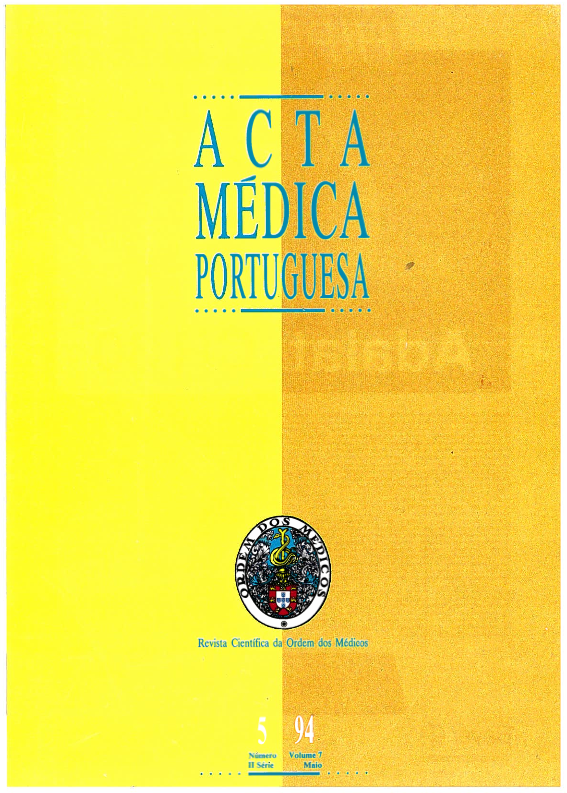Oculomotor paralysis. The perspective of a neuro-ophthalmology consultation.
DOI:
https://doi.org/10.20344/amp.2901Abstract
Ocular paresis is a usual diagnosis in neuro-ophthalmologic consultation, and its aetiology is indeed a challenge. The authors studied 3400 records concerning this consultation, between 1982 and the third quarter of 1993. During this period 221 cases with ocular paresis were selected. During this retrospective study we point out the following items: the cranial nerve affected; the neuro-ophthalmologic semiology; the aetiology and clinical evolution, according to the age groups. From 221 cases selected, 111 were paresis from the VIth pair (50.2%), 88 from the IIIrd pair (39.8%), 14 multiple paresis (6.4%) and 8 paresis from the IVth pair (3.6%). The most frequent complaint was diplopia (> 90%). As far as the aetiological diagnosis is concerned, this was easier to establish in patients > 50 years of age. In this age group the most usual aetiology was vascular and traumatic pathologies. In younger patients the most frequent pathologies were traumatic and tumoral. The prognostic was better in the vascular group, the paresis recovery being > 50% in all other pathologies, except the tumoral one.Downloads
Downloads
How to Cite
Issue
Section
License
All the articles published in the AMP are open access and comply with the requirements of funding agencies or academic institutions. The AMP is governed by the terms of the Creative Commons ‘Attribution – Non-Commercial Use - (CC-BY-NC)’ license, regarding the use by third parties.
It is the author’s responsibility to obtain approval for the reproduction of figures, tables, etc. from other publications.
Upon acceptance of an article for publication, the authors will be asked to complete the ICMJE “Copyright Liability and Copyright Sharing Statement “(http://www.actamedicaportuguesa.com/info/AMP-NormasPublicacao.pdf) and the “Declaration of Potential Conflicts of Interest” (http:// www.icmje.org/conflicts-of-interest). An e-mail will be sent to the corresponding author to acknowledge receipt of the manuscript.
After publication, the authors are authorised to make their articles available in repositories of their institutions of origin, as long as they always mention where they were published and according to the Creative Commons license.









